Introduction
Carbohydrates: Friend or foe?
It has become so hard for many to answer this question with so many messages flying around the wellness space online.
This controversial discussion often raises many questions. And this week's episode dives into why carbohydrates are an essential part of health!
This week on The Goodness Lover Podcast, we spoke with Dr. John McDougall—a Board Certified Internist, professor, and author of 13 national bestselling books advocating the consumption of low-fat, starchy food.
We explored Dr. McDougall's personal health journey, learned about carbohydrates and the difference between sources of carbohydrates, discussed how high carbohydrate diets can mediate inflammation, and SO much more!
Watch the Interview:
We explored:
🥦 Why it matters the type of carbohydrates you include in your diet
📖 Dietary sources of cholesterol and fat
🎢 Dr. McDougall’s personal health journey that led him to years of research on a low-fat, high carb diet
🎈 How a high carb diet can reduce and mediate inflammation in the body
🍠 Discussed different sources of carbohydrates
And SO much more!
Additional Resources
To connect with Dr. McDougall on and discover more of his work, you can find him on Instagram, Facebook and Facebook.. You can also visit his website here.Transcript
Dr. John McDougall: At 18 years old, I had a massive stroke. At age 22, my mother called me fat. I was 90 pounds heavier than I am now. At age 24, I had major abdominal surgery. I'd have been dead at the end of my twenties or thirties, or at least had heart surgery. I was fortunate. My plantation patients, my patients taught me the truth.
Sarah: Hello, and welcome back to the Goodness Lover show. Today, we're joined by Dr. John McDougall, who is a Board Certified Internist and author of 13 national bestselling books. He's here to talk to us about carbohydrates and why you actually might need more of them on your plate. It's a very lively and controversial discussion. So, let's jump in.
Sarah: Dr. John McDougall, it is wonderful to be with you today. You're a legend in this space. You have no less than 13 national bestsellers. You've been running the McDougall Program. What is it for, 35 years? Is that right?
Dr. John McDougall: I've been doing that for, yeah, for 35 years now.
Sarah: 35 years.
Dr. John McDougall: Our published results show that we get nearly 90% of people to reduce or stop their medications, especially blood pressure and blood sugar medications. Now, one of the independent studies done on our work was done from New Zealand, which is one of your neighboring countries and what they did is they took a community in a town in New Zealand. You can go to my website and you can find these studies. It's there available for you to read in its entirety. They took this community of people and they put them on the McDougall Diet and they got the same kind of results. They got a 25 pound sustained loss in weight. Sustained for a year. They got a 20 point drop in cholesterol. Sustained for a year and about 80% of people continue to follow the program after a year.
I mean, these are results that are unheard of in medicine to get people to comply like this. The reason they comply so well is because number one, they get such phenomenal results. They get off their drugs. Their bowels get working. Their chest pain stops. Their arthritis goes away, but they also love the food. We have the most delicious diet there is. It's made up of what we call comfort foods. Traditional foods like mashed potatoes and pasta and marinara sauce, and bean burritos, and Chinese or Japanese vegetable dishes put over rice. It's from their meal plan, especially to cosmopolitan people who've been around the world and tried different ethnic diets. That's what we use. We use foods from all around the world and we get these phenomenal results. Again, they're published in the Scientific Literature for anybody to read, just look up Dr. John McDougall. They're there. These are uncontested results, by the way.
Sarah: Incredible.
Dr. John McDougall: That's what I do now, but it wasn't always that way for me. I'm a regular medical doctor. As a matter of fact, I'm a Board Certified Internist. I'm an Adjunct Professor at a University. I teach medical students. I work as a Clinical Professor. So it's a very, very legitimate practice. It all started about a half a century ago, and I'll tell you, seeing you two, I assume you're good friends, at least.
Matt: Sometimes.
Sarah: Married.
Dr. John McDougall: It reminds me of the relationship that I've had for a very special person in the last 50 years. So, I'd have to say the program started when I met Mary in an operating room in Grand Rapids, Michigan. She was a nurse. I was a medical student. We made our declaration each other back 50 years ago and we moved to Hawaii. In Hawaii, I got my basic education about how to practice medicine on the big island of Hawaii, working as a Sugar Plantation Doctor.
Now, a Sugar Plantation Doctor, you might have guessed works in a plantation that produces sugar. Well, its workers are primarily made up of Chinese, Japanese, Filipinos, Koreans that have moved from their native land to Hawaii and started a new family, a new life. Well, these first-generation people, they stayed on their basic diet, which was centered around rice. I mean, think about it. What do the Filipinos eat? What do the Japanese eat? What do the Chinese eat? Koreans, Vietnamese. Rice. So, their diet was over 90% rice and a few vegetables, almost no meat, no dairy. These people came to me and they were my patients, but they never got sick. They stayed trim, hard working in the fields until their eighties and nineties. They raised their families.
Now their kids, who were born and raised in Hawaii, were influenced by the American diet. We have a [Tex drive-in] right up from the plantation I worked at, which is the home of the Malasada, which is a greasy doughnut. So, they started eating the richer foods and even when I was there, a monumental thing happened, and that is McDonald's came to Hilo, Hawaii in 1974. That was the first McDonald's on the Island. I was one of their first and best customers.
Anyway, I had these three or four generations of people. Those who were first generation lived on rice, second generation, more Western influence, like the diet you eat in Australia, New Zealand, the United States and by the time you got to the third and fourth generation, they were fully Westernized. They suffered from obesity, gout, breast cancer, colon cancer, rheumatoid arthritis, multiple sclerosis and so on. They're just like the patients I learned medicine on when I was a medical student in Michigan or a Resident in Honolulu. These were, I hate to use the word, but they were fat, sick people. That's the second and third generation, but the first generation wasn't who lived on their native diet of rice and vegetables.
Anyway, after three years, as a Sugar Plantation Doctor and having great experiences, I caught a hundred babies. I did brain surgery in the middle of the night.
Sarah: Heck yeah.
Dr. John McDougall: But most importantly, I learned my limitations as a doctor. My patients never got well. Those with chronic diseases never got well and like most doctors, all I did was give them a handful of pills and a bunch of excuses. They never got well. Well, that was very frustrating as a physician, so I went back into training after three years as a Sugar Plantation Doctor, and I became a Board Certified Internist and what I discovered is a basic truth that I want you to understand. That is the rich Western diet makes people sick and has made people sick for at least 5,000 years.
If you go back to the pharaohs, to the Kings and Queens, to the pyramids, to the hieroglyphs and you find mummies that are 3,500, 4,000 years old, they suffer from Western diseases. These are our Kings and Queens that never smoked cigarettes. They got lots of exercise, lots of sunshine, but what they ate, was they ate the food that was brought to the temple. What the people, the common people who lived on wheat and barley did, is they would kill some animals and put them on the statues and then the priests and [inaudible] and Kings and Queens would eat the animals and they got fat and sick, just like the royalty of the eighteen hundreds in Western Europe.
I mean, can't you picture the fat king sitting on his throne with his gout inflicted foot. Rich foods make people sick. The traditional diet of human beings is the diet 99.99% of people have followed. The traditional diet of human beings was given up about fifty to a hundred years ago. The traditional diet is reflected in, for example, the diet of Aztecs and Mayans. These are known as the people in the core and these people in central America, their civilization has existed for 1300 years. The people of the corn. The American Indian ate corn. The people in South America, the Incas lived on potatoes. If you go to Europe, you go to the Middle East, you remember that this was called the bread basket of the world and if you think of Asia, you probably come to the conclusion that these people eat rice.
Before 1980, 90% of the food of a typical Asian's plate was white rice, but that's changed. I mean, people in Asia are rich now. For example, the Chinese are some of the richest people on Planet Earth. They have the second greatest number of Tesla supercharger stations in the world. And you look at the Chinese people. Look at the rich business Asians. They look just like Americans and Australians and New Zealanders, right?
Okay. So, with that basic knowledge that there is a diet for human beings, and that is corn, potatoes, rice, sweet potatoes, beans, peas, lentils and rich foods that most should be consumed on special occasions. For example, you have cake and ice cream on your birthday, right?
Sarah: Mm-hmm (affirmative).
Dr. John McDougall: On Thanksgiving, you have turkey. At Christmas, you have ham. Australians, New Zealanders and Americans, they have a birthday party every day after lunch and dinner.
Matt: Mhmm.
Dr. John McDougall: Thanksgiving is the healthiest meal they eat all year long. We celebrate every day with one feast after another. Why do you think we're sick? Anyway, that's the underlying basic foundation for what I wanted to tell you.
Matt: That was quite a National Geographic way of getting there. I loved it. I was with you the whole journey.
Dr. John McDougall: Well, can you see it?
Matt: Yeah.
Dr. John McDougall: Can you see what I'm talking about?
Matt: Yeah. I can see it. I'm curious, yeah. There's so many ways, pathways we go down, but to start with, is there any proof that our digestive tract does well with a rich carbohydrate diet?
Dr. John McDougall: Absolutely. Again, that was the traditional diet of people. Almost everybody who's walked Planet Earth has eaten a starch based diet, a diet of rice, corn potatoes and so on. Plants, only plants have fiber in them. There's no fiber in any animal product at all. You've heard about how fiber is integral to the health of the intestinal track. Fats, okay, if you lack fiber, you get constipation, which is associated with inflammatory bowel disease like Crohn's and Ulcerative Colitis. You also get diarrhea from the same diet. We can go into that, if you want.
The animal products, that's where you get the cholesterol. Cholesterol is only found in animal products in any significant amount and this cholesterol is absorbed through the gastrointestinal track and then it becomes embedded in your arteries. It gives you heart attacks and strokes. So anyway, we take, I would guess that 80% of the people that I take care of at my clinic, you remember, we run a telemedicine clinic. People from all over the world can get involved. Yeah. Very inexpensive. I would say 80% of the people have bowel problems and many of them don't realize it because they think a normal bowel movement is a rock hard fecal marble. Can you understand that?
Matt: Yeah.
Dr. John McDougall: Can you relate to that, a rock hard fecal marble? Well, I'll tell you, at the clinic this used to come up a lot, is I ran this clinic at a resort in Santa Rosa, California for 18 years. The people who ran the resort, when they knew we were on a schedule, they would order extra toilet paper because all of a sudden people would have normal, large, easy to pass, non-stressful, non bloody bowel movements. What a pleasure. This happened in about two or three days.
Now, surprisingly on the other end of this discussion is I take care of an occasional person with chronic diarrhea. In fact, diarrhea to the point where they can't even get out of their bathroom. They have their iPad in their bathroom. They have their phone in their bathroom. They haven't been to a meeting in two or three years because of distress that would interrupt the meeting with diarrhea. They're afraid to get on an airplane because of the diarrhea. Well, this is easy to explain. What happens when you eat fat, we're talking about vegetable fat, healthy fats, olive fat, pig fat, cow fat. Any kind of fat. Fish fat. What happens is you produce bile acids in the liver, which are to digest the fat. Well, in certain circumstances, people have the inability to reabsorb bile acids or they've lost their gallbladder, or they have other diseases of the small intestine, particularly the distal small intestine, the ileum. What happens is they can't reabsorb the bile acids and they end up in the large intestine where they're so irritating that they result in 20 30, 40 watery, explosive stools a day.
Well, Andreessen, and you can find this on my website. In fact, I'm going to give a lecture on fats and so on up here. Soon, you can find it on YouTube. It's going to be a two hour lecture. But, Andreessen published in the early 1970s in the Journal Gut, how he took people with this inability to reduce bile acids in their intestine, people who these irritating bile acids went into large intestine, people who had 20 on average bowel movements a day, watery stools, he put them on a starch based low fat diet. Within 48 to 72 hours, they were forming two to three formed stools a day because they stopped the irritation of the bile acids, which were produced by the fat people eat. And you know the Western diet's a high fat diet. So, as I say, the treatment of bowel diseases extended as far as deadly diseases like Ulcerative Colitis and Crohn's disease. The research says so. These diseases are only present in population that eats Western diet. Anyway.
Matt: Interesting.
Dr. John McDougall: Where does life go from here. Gallbladder disease, bad breath, stinky farts.
Matt: Well, I was thinking something a little bit more controversial, perhaps. Grains have been vilified, and there's been an enormous controversy around this topic. So, I'm very interested to see your passionate response. Obviously, we're building towards something that you've studied and researched and implemented your entire lives. You've obviously seen great results in people on a high starch, high carbohydrate diet. So, tell us about grains, the controversy and what you think of them.
Dr. John McDougall: Two billion Asians lived on a diet of 90% rice up until 1980. Excuse me. How much nonsense do I have to put up with? Yeah. The idea that carbohydrates are bad for the bowel is contrary to not only the scientific research, all the scientific research, but geographic observations, historical observations. How did these Mayans and Aztecs ever survive? How did they compete in athletic events? How did they go to battle on a diet of corn? The Incas, not only are they potato eaters, they have 400 different species of potatoes in the Andes. But, what happened when the Incas went to battle, because potatoes were so heavy to carry, they switched to a diet of Quinoa, another grain.
I tell you what I think, is people like to hear good news about their bad habits. So, anybody that comes around like me and says, you shouldn't be a Brie cheese or cows butts, or pigs feet. They get real defensive. Tell me some good news about my bad habits, like grains are bad. Oh, then I can't eat anything. Or I can eat everything. If you have a bunch of people who are disingenuous, as far as the truth is concerned, they've got a whole bunch of conspiracy theories. Hey, you ever heard of those? They ignore science. They talk to the gullible population. I'm sorry to offend your listeners, but they're in big trouble. Half of them will die of heart disease. One in six women will get breast cancer. One in seven men get prostate cancer. These are due to eating the diet of Kings and Queens.
So, maybe I'll hurt a few feelings. Maybe, I'll offend a couple of people. Boy, if we got somebody to really listen to this message, you get phone calls you wouldn't believe. As I say, our our results are published in the Scientific Literature. We get nearly 90% of people to reduce or stop their medications. We get an average... There's a study in Pub Med about our work studying 1,703 people. Nobody excluded. We got an average weight loss of 3.1 pounds in seven days of unrestricted eating. We've got an average drop of cholesterol of 22 points, which is about four international units. In seven days. We got about, as I said, we got most people off medications. They feel great, too. Their arthritis went away. Their headaches went away. They had great bowel movements, which I know you enjoy talk... That's one of the subjects I can get my grandkids to listen to us is when we talk about bowel movements. They're at that age. So, I'm glad to hear that you would like it too. You like to hear grandkid talk.
Sarah: So, just to conclude, I guess, the topic on grains, could you tell us a little bit about the literature that we have on grains? Obviously, there would be some voices in the medical community, wellness community, that would say grains are inflammatory, but what does the science say? What does the literature say?
Dr. John McDougall: Well, this may be a little complex, but I'll try and help you understand this. Again, people love to hear good news about their bad habits and what you sincerely, extensively, condemn what they're eating, they have to find another explanation, a conspiracy theory. And what the conspiracy theory is, is well, it's not the meat. It's not the dairy or the ice cream cones that's causing my problems. It's something called inflammation and so we have to stop eating inflammatory foods. Well, inflammatory foods are the animal foods and the oils. What happens, the way you get inflammation, let's talk about this, is you start with injury. For example, if you smoke cigarettes, you injure the lungs. The lungs respond by something called inflammation, which is the only way the body responds to injury. The tissues become red and swollen and painful and hot that's inflammation.
That's not the problem. The problem is the source of injury. So, you go to somebody say, I got an anti-inflammatory drug, like corticosteroids. Take those them your lung problems, rather than say, quit smoking, which is causing the injury. It's the same thing, even though the advice is absolutely useless to blame grains as inflammatory foods. Instead, what we need to do is focus people, not on the inflammation, which is secondary to injury, but on the source of injury. What do you think the source of injury is? It's the food and too often, it's the foods that people don't want to talk about. Their favorites. So, they blame it on something else, which is untrue.
Inflammation as a consequence of injury. What is the source of injury? If you drink alcohol, you get an inflammation of the liver. What do you think you ought to do? Take vitamin pills that help the liver, or do you think you ought to stop the booze? It's the same thing with all this nonsense that you're being taught in terms of a whole variety of diseases, all the way from cancer to heart disease, being due to inflammation. You need to ask, what's the source of the injury? Is that a too complicated of an explanation?
Sarah: Oh no, no, no. That's great.
Dr. John McDougall: Does that make sense to you?
Sarah: Yeah. Yeah. It does.
Dr. John McDougall: Nobody says inflammation is the cause of your problem. You say next guest you have, you say, "What's the source of the injury?" For example, when you smoke cigarettes, it causes inflammation. Should I give the person aspirin, non-steroidal anti-inflammatory agents, corticosteroids, to attack the inflammation? Or do you think I should stop the injury? The smoking.
Sarah: I guess the same voice, I mentioned before, would say that the grains is the source of injury. What would you say specifically to that? Is there any scientific literature to back that up?
Dr. John McDougall: No. In fact, I did a whole article called Smoke and Mirrors of Grain Brain and the Zone. I think it's the Zone. It's in one of my newsletters. It goes through the various research. I mean, you guys are hosts to an important blog. Do you ever look up the science to see whether a guest is lying to you or not?
Sarah: Mm-hmm (affirmative).
Matt: Yeah.
Dr. John McDougall: You do. Okay. Well then you go to my website, drmcdougall.com, and you look up Smoking Mirrors of Grain Brain. Okay?
Sarah: Mm-hmm (affirmative).
Dr. John McDougall: And what you'll find is, I've listed for you, the bulk of the scientific research that shows clearly animal foods are inflammatory and vegetable foods, including grains, including wheat, are not inflammatory. Read the science.
Matt: Interesting.
Dr. John McDougall: You really ought to be mad because you've been given so much misinformation. I guess I'm feeling that from other guests. Well, ladies and gentlemen.
Matt: Oh, no, no.
Sarah: No. No. No.
Matt: We just like to said there'd be people that would object to what you're saying. So, we just want to give-
Dr. John McDougall: All right.
Matt: ... you the opportunity.
Dr. John McDougall: So you want to be the devil's advocate.
Matt: Yeah. Yeah. We want to give you the opportunity to defend that because they'll be people saying, well, where's the evidence? Where is, specifically, John, the evidence that animal foods that animal food are inflammatory.
Dr. John McDougall: The evidence-
Matt: [inaudible] inflammatory.
Dr. John McDougall: The evidence is in the National Library of Medicine, which is available to all you for free. I bet you, in 15 minutes, you can see what I'm telling you is true, or like to say, you can to my website, drmcdougall.com and you can see the newsletter I did on the Smoke and Mirrors related to grain, grain, and the zone, all these other low carb diets. They're lying to you. Why are they lying to you? Well, it's called conspiracy theories. You gain a lot of audience. A lot of people who are deniers of science to buy into conspiracy theories. We see it in politics. We see it in medicine. We see it every place. This is the emotion that people are reacting on, not science.
Matt: Interesting. So, I'm curious, you're now an educator in the medical field. We know that the average medical doctor, I think this is coming out of the United States, doesn't receive a lot of nutritional training. Why do you think that is the case?
Dr. John McDougall: Well, because medical schools, remember I'm a professor at, well, probably four medical schools. Medical students come to me. The students, when they come and they see what happens to people when we do something basic, which is to stop food poisoning due to animal foods and oils, they see them get welfare in front of that. And they go, "Why were we taught nothing about diet therapy?" And they're not. They're taught nothing about dietary therapy in medical schools all over the world. They may be taught some biochemical formulas related to food, but not diet therapy like I'm talking to you about.
Well, the reason is, is because medical schools are trade organizations there. They're there to teach the students a trade, like to do eye surgery or bone surgery. A trade. That's what they're there for and they're there to get the students to pass the medical boards.That's why they're there.
So, that's why they get virtually no education on nutrition. I did a kind of a landmark thing. I did it in the year 2011. You could go to the internet and you could look up a California SB380. It's a law that I wrote. I'm not supposed to say I wrote it, but I wrote it. I testified to two bodies of senators and when I initially walked in, they said, we don't want to hear any more about regulating doctors or making rules for doctors. I gave him a 45 minute discussion and within a month, both the major and minor houses of legislation in the State of California passed SB380 unanimously, and Governor Jerry Brown signed SB380 in to law in September of 2011.
Now SB380 forces medical schools, at least in California, to teach nutrition. I didn't ask him to teach the Atkins diet or the McDougall diet. I just asked him to teach students about what human beings eat and also SB380 was supposed to force our 500 hospitals in California to have seminars, new time, educational opportunities that focus on human nutrition. Because as you said, Matt, clearly this is not taught in medical school. Medical schools are there to get you to pass the Boards and to learn a trade.
Matt: Interesting. So, okay, great. That's a really interesting story, by the way of actually talking to the Senator. So, good job on that. So, okay, what are some of the... We have a lot of people in our community that are suffering from some form of obviously bowel irritation or something, or gut issue. So with your program, I'm just curious to hear some stories of people that perhaps have had this diet, or going down this pathway of going more carbohydrate rich, which may be against conventional thinking about how to approach that. What are some of the stories that you've encountered with people that have been able to turn their life around because of this.
Dr. John McDougall: I've got more than a hundred stories on my website, Dr. Mcdougall.com. They're are called Star McDougallers and they're people who have all sort of Ulcerative Colitis, Crohn's disease, constipation, chronic diarrhea. Hey, let me ask you something. If you're talking about bowel diseases, where do you think first? Don't you think about the things that come in contact with the bowel? It's just like if you had a lung problem. Once you think about the breath you took in? Or you had a skin problem, wouldn't you think about the lotions you put on your skin? Why is it somehow that we become complete deaf and blind when it comes to the idea that what you put food in this 38 foot long tube, that it has nothing to do with health? How could we deceive ourselves and fail to look at the food as the cause.
The human being is a starchavoir a starchaterion, a starch eater. As I told you, 99.99% of people who've walked Planet Earth have consumed starch based diets. The exception has been a few people who have lived at the extremes of environment like the Inuit Eskimos. So, when, wouldn't like a hundred billion people be some evidence that you'd look at?
Matt: Interesting.
Dr. John McDougall: If it wasn't for the politics that occur in the United States, Australia, New Zealand, the rest of the world, I wouldn't believe what I just said. But, you see people all over the world lying, having alternative facts, conspiracy therapists. That's the world of 2021. The better you lie, the greater the audience you attract, especially if you tell lies that support your listeners and their viewpoints. But, it's not true. It's not true. I mean, you are people of history. What did 90% of Asian eat up until 1980?
Sarah: Why was there the change in 1980, specifically?
Dr. John McDougall: Well, because of CNN news. You see what happened when we had all this telecommunication, is people said, hey, I want to live like Americans. I'm going to eat like Americans. I'm going to drive like Americans, but you know what? Most of these people ended up being smarter than Americans and harder workers than Americans and they have surpassed the American standard of living.
But, the problem is, is they didn't take some important lessons from history and save themselves from epidemics of obesity, heart disease, diabetes. In China, for example, you can find this published in the Journal of the American Medical Association. In China prior to 1980, 90% of the food was white rice and before 1980 people lived on a diet that was 90% white rice. Today in China, more than 12% of the population is frankly, diabetic and half are pre-diabetic and it's worse among the youth. The older people are still maintaining pretty good health and trimness, but the kids have gone hog-wild. That's probably the bad thing to say. Hog-wild, and adopted the American diet. Well, we need to be smart. We need to take advantage of sanitation, immunizations, good nutrition. We need to take advantage of that. Our hospital systems and the drugs, we have accomplished some amazing miracles out there. Even recently, with the COVID-19 vaccination and the efforts to make the world a safer place. Science is dominant.
Well, you don't have to throw out the vaccinations, the sewage system. The truth about nutrition, what you will find in the National Library of Medicine, just because you're rich, I mean, you can drive a Tesla and still eat a bean burrito without meat and cheese. What? Come on.
Matt: It's just like any question I ask, I know that you're going to... You go down some really interesting pathways.
Dr. John McDougall: Okay, Matt. I'll tell you what.
Sarah: It's so entertaining. I'm enjoying it.
Dr. John McDougall: This isn't the first time I've been around the block.
Matt: So, these rising chronic diseases that we have... So, your central thesis, being that our departure from starches and eating more animal products, we've now had, obviously, has followed this chronic rise in diseases, and obviously, then there's all this confusion around in diets and people don't know what to eat, so they just go back to eating what they want to eat anyway. So-
Dr. John McDougall: Just what the people do.
Matt: Yeah. So, I'm just curious.
Dr. John McDougall: Nothing's safe to eat. I might as well eat what I like, right?
Matt: Yeah. So. These biggest killers like heart disease and strokes, for example, just let's go into the mechanism as to why a carbohydrate rich diet, or a high starch diet impacts those certain diseases. Is it just the reduction of cholesterol or is there something else going on?
Dr. John McDougall: No. There are other things going on. In fact, the only way to honestly, truthfully look at it is you have to say rich foods damage the arteries and cause them to close down through ruptures of plaques that give you strokes and heart attacks. I mean, you can't be any more specific than that and still tell a true and complete story. Are there are all kinds of mechanisms involved in heart attacks? The most common theory has been the cholesterol theory. The idea that cholesterol is toxic to the artery linings and causes injury, particularly oxidized cholesterol. It's called LDL cholesterol. It causes injury of the arteries.
The other thing that's come out as a recent theory is trimethylamine, TMA. Trimethylamine. This was discovered at Cleveland Clinic.| Researchers started publishing this about five years ago. What they found is that people ate diets with high levels of precursors of trimethylamine, which are carnitine and coleen, which are found in animal foods. What happens is, and you have to along with it, eat a American diet. If you eat a vegetarian diet, you don't grow bacteria in your colon that have the ability to convert trimethylamine, TMA, into trimethylamine oxide, TMAO. TMAO is also known to be toxic to the artery linings.
The other thing involved, it has to do with blood clotting. You know that you take aspirin to thin the blood, fish oil too thin the blood, so you don't get a blood clot, which is what happens when you have a heart attack. You get a stud rupture of a plaque. You get a blood clot. Well, saturated fat causes the blood to want to clot. So, there's another mechanism. It's set you up for after a rupture to have a big clot form to give you a dead brain and dead heart muscle. So, I mean, there are three mechanisms right there that are dominant, easy to research. But, the only truth is, is that rich foods will kill you. No. No. It doesn't kill you. Rich foods make you live like a king and a queen, overweight and sick.
Matt: Not very long.
Dr. John McDougall: They don't kill you right away. You see, that's the problem. It's slow death. If smoking a cigarette caused everyone to end up on a ventilator, nobody'd smoke. If drinking alcohol cause people to get into an auto accident, every single time they drank and kill their kids, nobody would drink alcohol. If eating one hamburger or bowl of ice cream or cheese sandwich, closed your arteries down immediately, nobody would eat this garbage, because it's a slow... You'd have to do it for 20, 40, 60, 80 decades to build up an accumulation of injury that finally tips the body over into death and disease. The body wants to survive. It's goal is to live, to survive and it's in good health, so it does everything it can to survive.
The only reason the human being is alive today in Western society is because of this innate ability to survive and to heal extensive damage. We live in a miracle. Think about it. You could smoke two packs of cigarettes a day. You could drink a half a bottle of whiskey a day and you live. You can even eat pork chops and live, at least for a while.
But, I guarantee you, not many people are as in as good a health as I am in my mid seventies, or my wife, Mary, in our mid seventies. Now, I wouldn't have been that way. I started out a very unhealthy man. I told you about my plantation experiences. Well, prior to that, I lived in a family where my parents thought the most important nutrients were calcium and protein. So, they made sure we got lots of milk and meat.
The result was, is I had terrible bowel problems when I was a little kid. I'd be embarrassed to tell you about some of the things that I had to go through to evacuate my bowels. I had terrible stomach pain. I ended up having my tonsils removed, which is due to the dairy, when I was seven years old. As a young teenager, I had a greasy face and acne, and I was always at the back of the pack because I had no endurance. At 18 years old, I had a massive stroke, a massive stroke when I was 18. That was because of the way I was eating. I didn't kill me, but for 56 years, I've walked with a horrible limp and if I ever wind surfing with you, you'd note that I do terrible port jibes because I have profound weakness still on my left side. At age 22 of my mother called me fat. I was 90 pounds heavier than I am now. At age 24, I had major abdominal surgery. I'd have been dead at the end of my twenties or thirties, or at least had heart surgery.
I was fortunate. My plantation patients, my patients taught me the truth and so, as I say, Mary and I in our mid seventies approaching our eighties, you can hardly believe it until you reach that age. We're in great shape. We do everything we want. We really enjoy our seven grandkids and I stay active and I get the opportunity to be on shows like yours, Matt and Sarah. Thank you.
Matt: Well, thank you so much for our very enlightening conversation and we've actually had a lot of fun listening to-
Dr. John McDougall: Oh, I hope you did.
Matt: Yeah, we definitely have. So, if someone wants to learn more about you and the work you do, where's the best place to find you?
Dr. John McDougall: Well, if you want a casual look, which by the way, has all the answers you go to our website, which is drmcdougall.com. That's D-R-M-C-D-O-U-G-A-L-L, or just look up John McDougall. I'm pretty dominant in the internet. As if you just want to have, well, you can do it on your own. Everything's there. It's free. Everything is free. But, if you're facing a real need to change, I mean, you've just had it. You're tired of asking for seatbelt extenders when you get on an airplane. You're tired of going to the extra large dress sizes. You're tired of all that. Then let us have a chance to help you. The telemedicine program costs a third of what we used to charge for our residential program. It's almost a gift that we have people come through this program.
It's 12 days of intensive education and support. As I told you, our medical doctors there, are medical doctors. Our support specialists are there. Our dietician, our psychologist, our exercise, the whole team is there for you. In two days, we start a new life for 50 people and as you'll read from the study of my work that was done at Oregon Health and Science University, the Medical School in Portland, is 85% of people stay compliant with the McDougall diet for a year. That means they're permanently changed. That's independent research. I didn't have any input into this finding. 85% of the people who follow, learn the diet, stay compliant for at least a year.
Matt: Well, thank you so much for your time and be sure to check out Dr. McDougall's website.
Dr. John McDougall: All right.
Matt: You've got so much free and thank you so much for coming on the show.
Dr. John McDougall: Yeah. Well, it's fun. Obviously, you guys are starting out in life and you'll want to not only have a good life for yourself, but the people you know. To help other people, it's the greatest gift there is and you must get a lot of positive reward from running this kind of show from your listeners. So, I hope I contributed.
Matt: Thank you so much.
Dr. John McDougall: And at least got people thinking.
Sarah: Absolutely. Thank you so much, Dr. McDougall.
Matt: Well, that was controversial. Just how we like it actually here at the Goodness Lover show. So, if you would agree, disagree, hated it, whatever it was or loved it, please let us know in the comments. We'd love to hear from you guys, particularly what specific point you agreed with or disagreed with. That's how we'd love to get feedback on the show and make sure you like and subscribe, because if you want more controversial things like we talked about, then yeah, like and subscribe. That way, we know you love us and you know we love you and we'll keep making good content.
Sarah: We'll do our best. But yeah, I really enjoyed today's chat. I couldn't stop giggling. It's just made me laugh.
Matt: Yeah. I know.
Sarah: Laugh the whole time. So, I had to keep it together. But yes.
Matt: We definitely respect him and his work, for sure.
Sarah: Yeah. For sure.
Matt: It was just certainly his personality shone through and I really enjoyed that.
Sarah: Yeah. We did. He definitely... His goal was to get us thinking and get us thinking, he did. So, let us know what you think in the comments below. Thank you for joining us once again, and we'll see you next week.






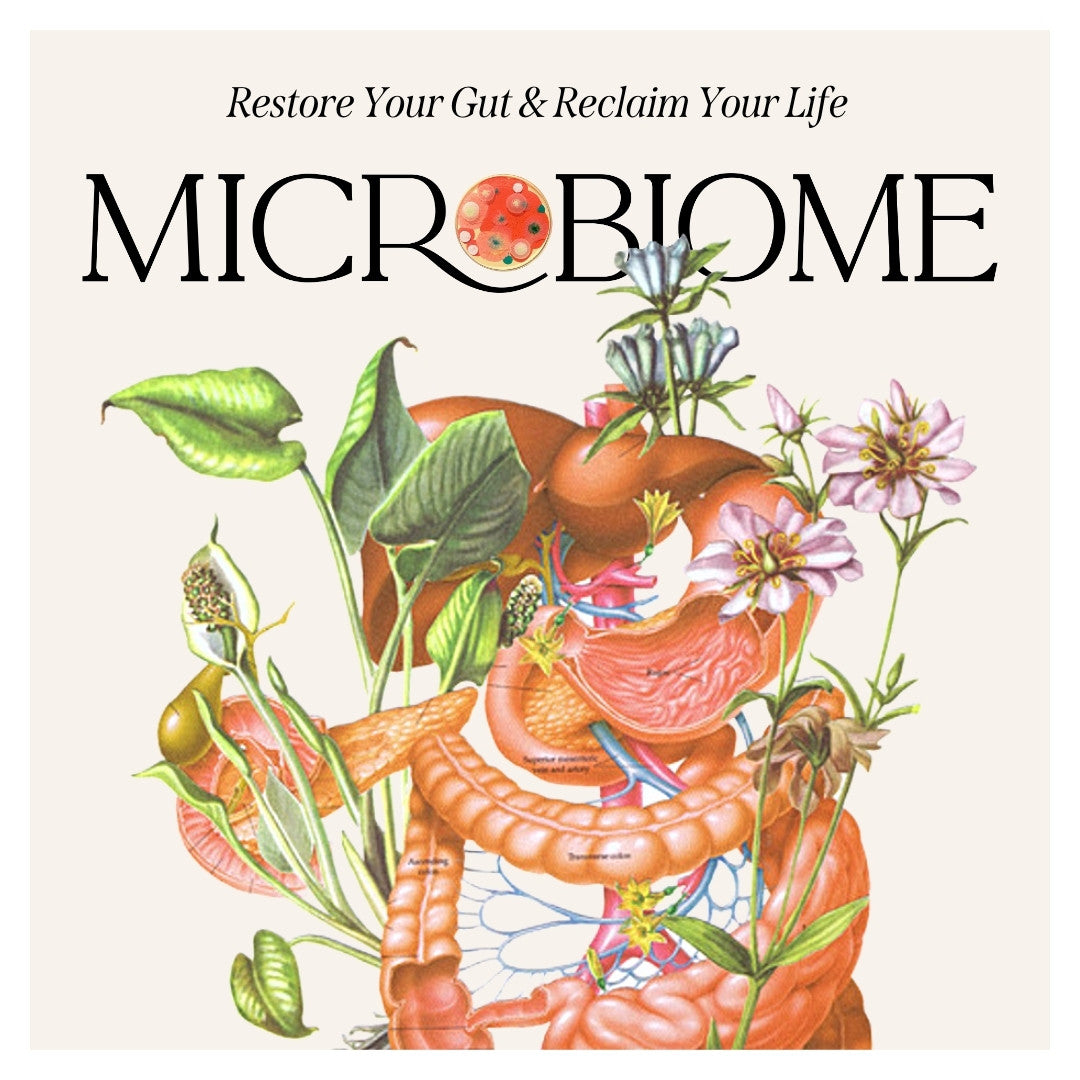

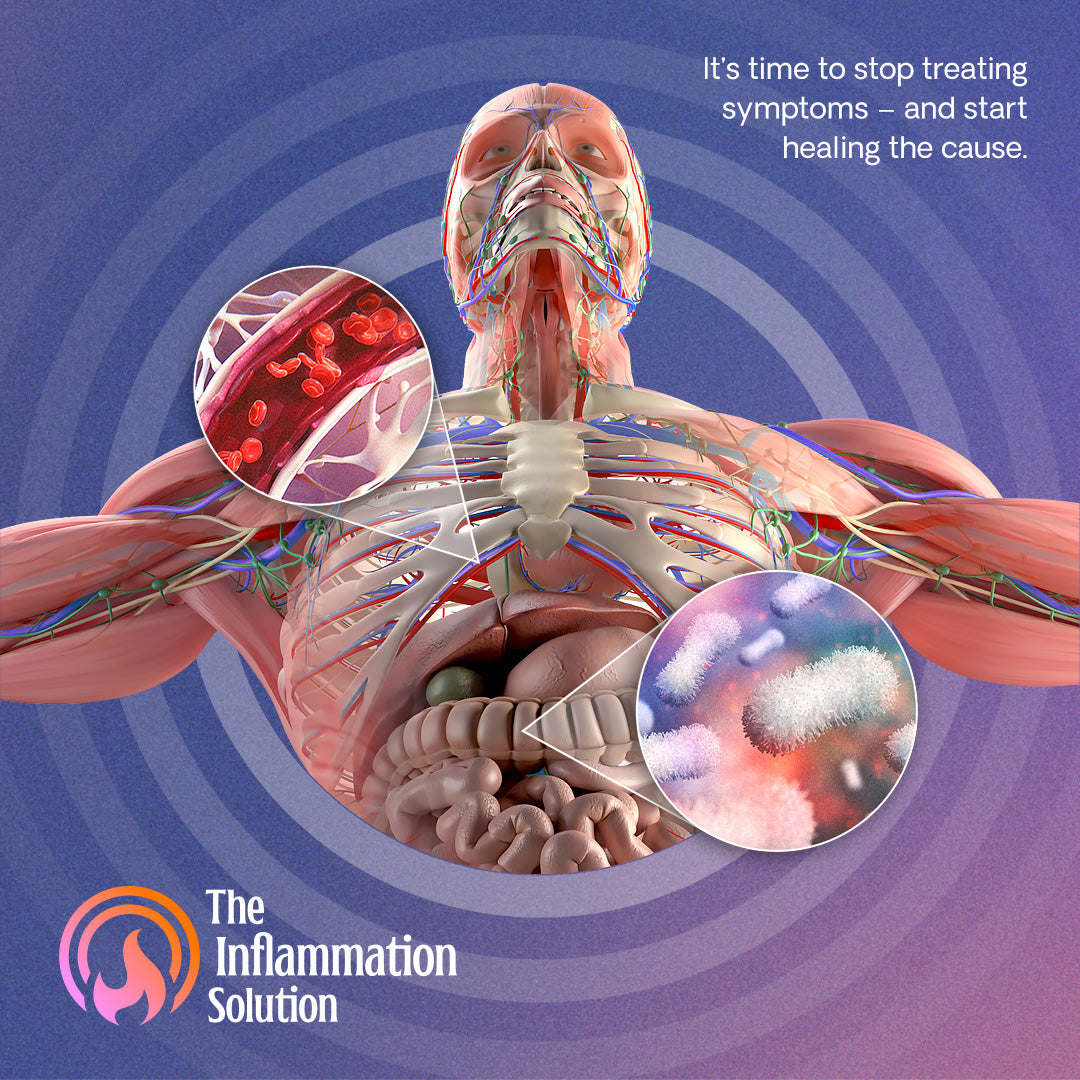

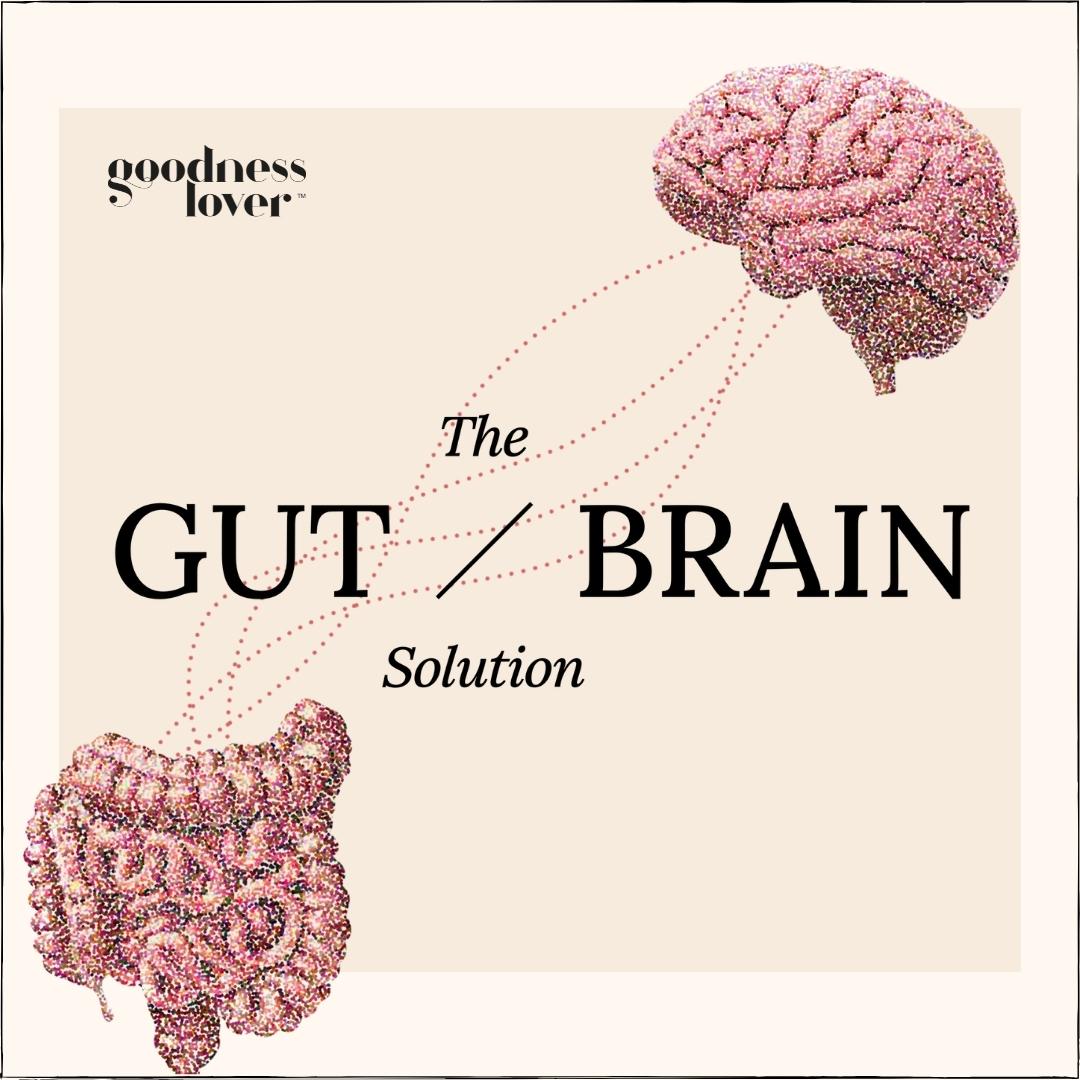

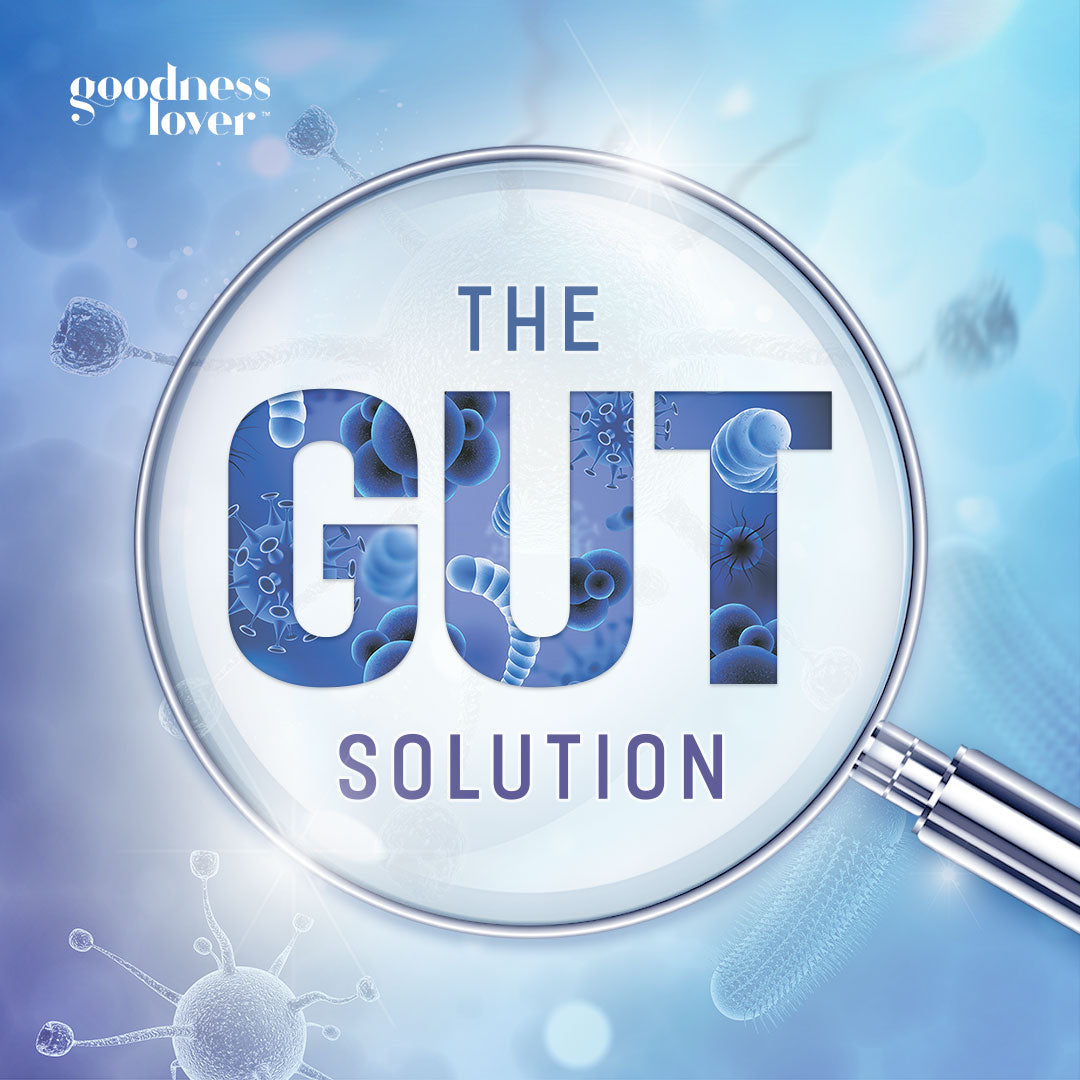
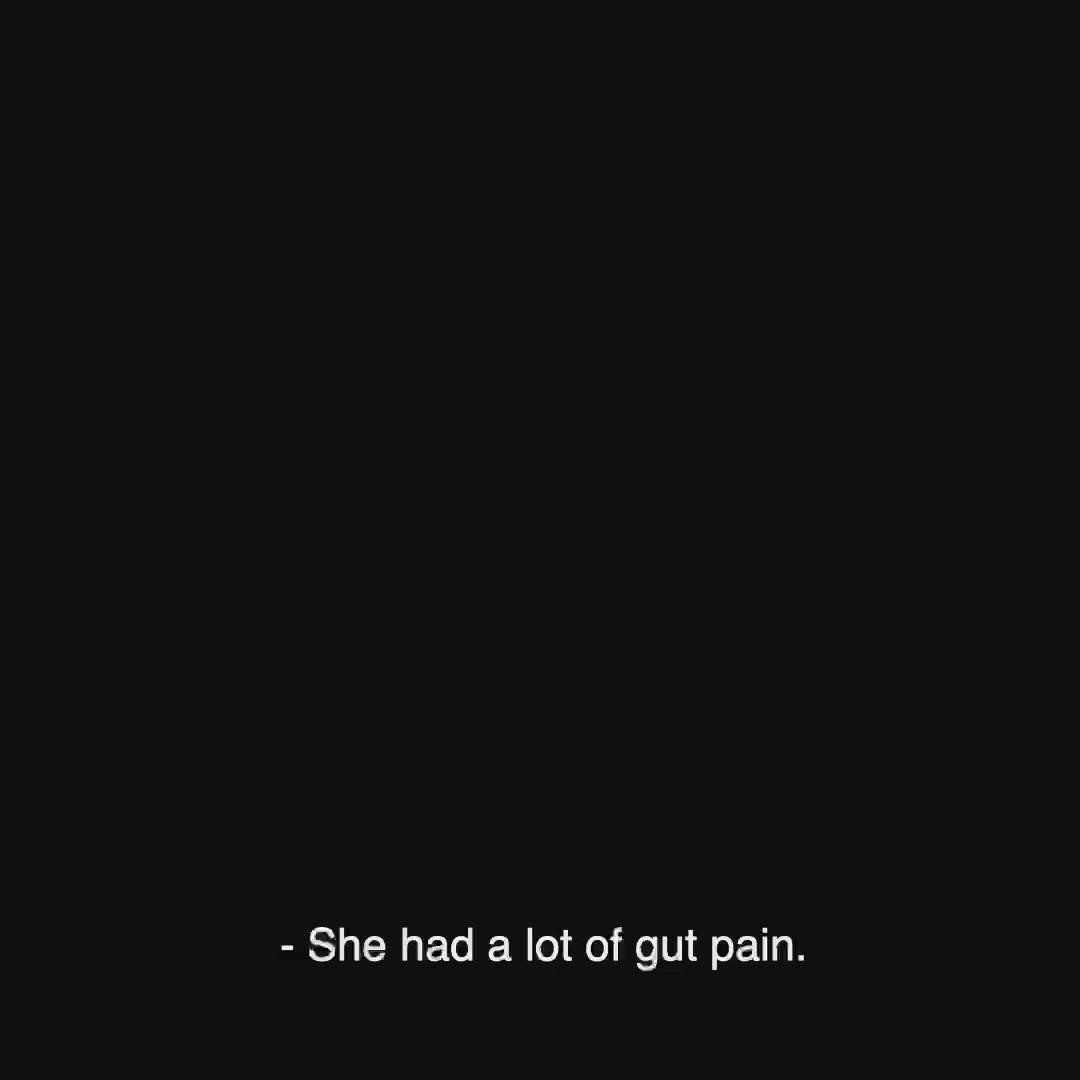
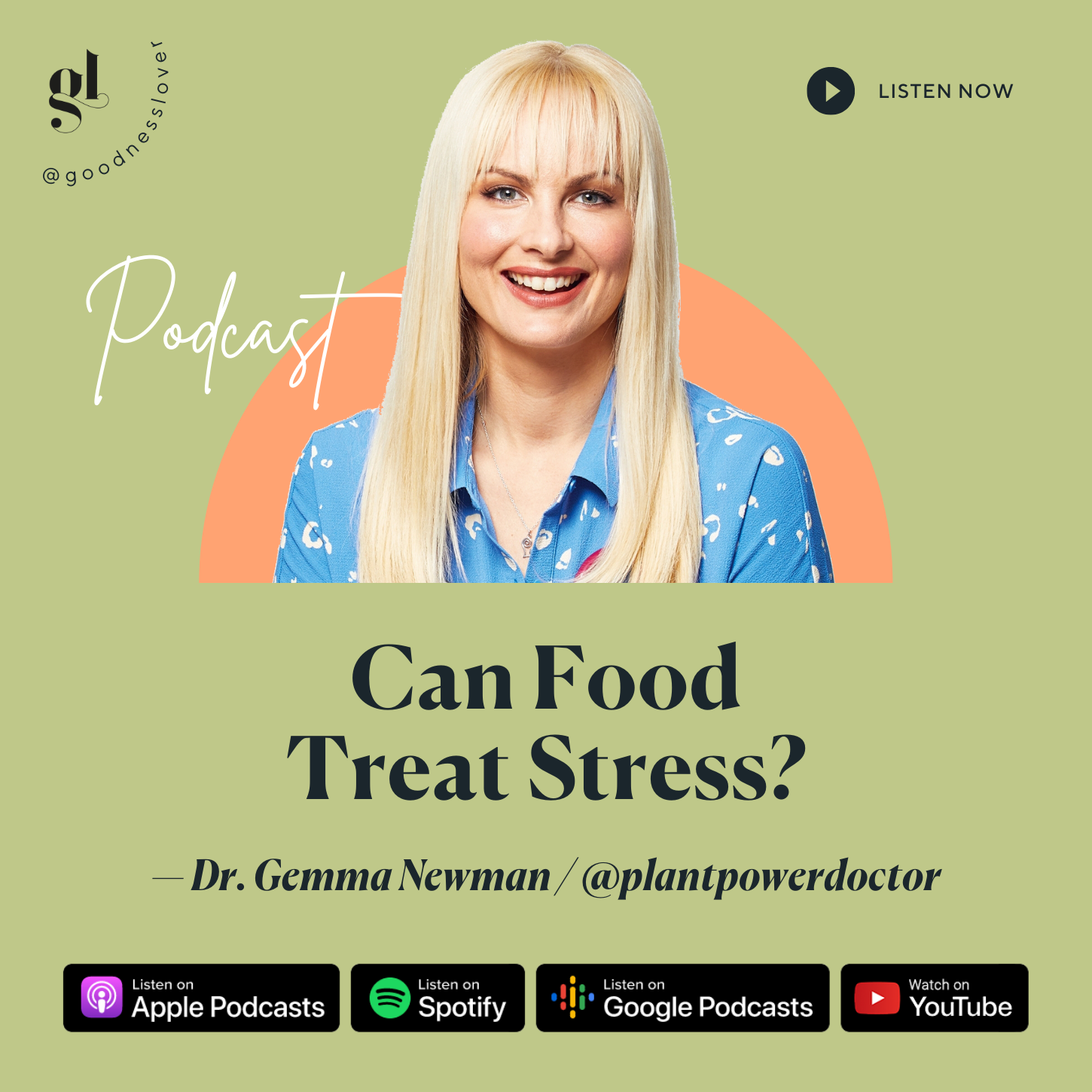
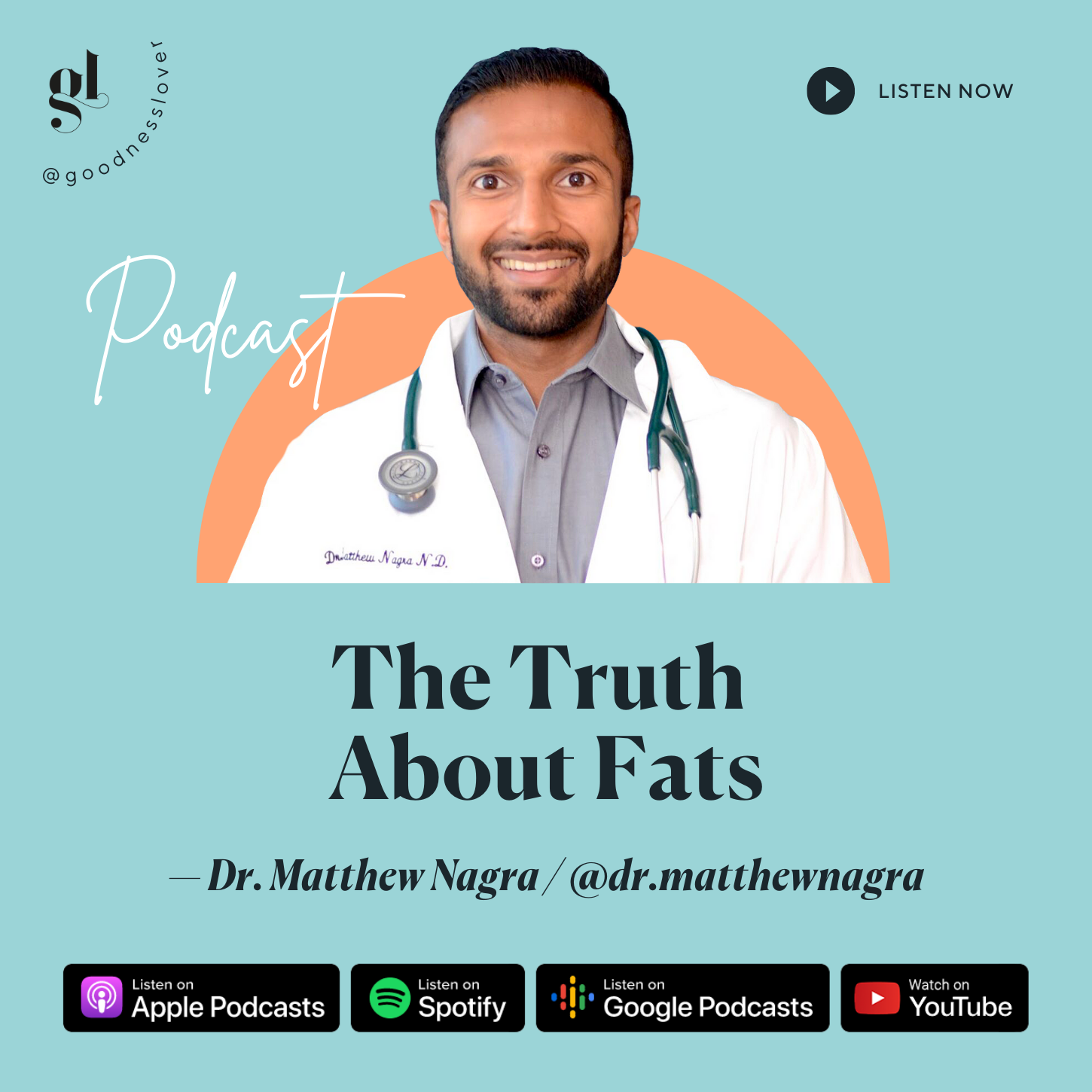

What Do You Think? Comment Below: